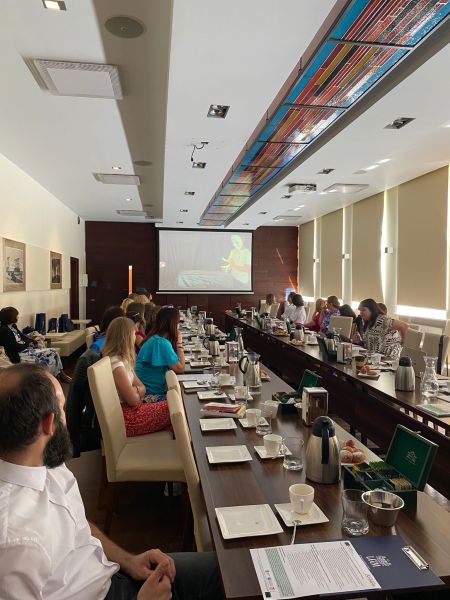On June 23, 2025, the Faculty of Educational Studies at Adam Mickiewicz University in Poznań hosted the International Conference titled “Bridging Diversity in Education – The Puppet Theatre in Working with Disadvantaged Children and Youth.”
The event marked the culmination of the Erasmus+ project “Puppet Theatre Integration in School Education for Social Inclusion of Vulnerable and Marginalized Groups (Puppet INTEGRATE)”, which focused on supporting the educational inclusion of children and youth at risk of social exclusion—including migrant children and those from ethnic and national minorities—through the use of puppet theatre methods.
Participants and Opening Remarks
The conference brought together over 50 participants, including nearly 40 professionals directly involved in the project’s implementation. These were primarily teachers and specialists such as pedagogues, therapists, speech therapists, and psychologists, representing 10 different educational institutions (across various levels) and a community self-help center. All of them had applied the puppet theatre method in their regular work with student groups.
Additionally, the event welcomed several guests from local associations, foundations, schools, and kindergartens who expressed a strong interest in the topic.
The conference opened with welcoming remarks from Prof. Natalia Walter (AMU) and Prof. Antonis Lenakakis (Aristotle University of Thessaloniki). Following this, Dr. Mateusz Marciniak, the national coordinator of the Puppet INTEGRATE project in Poland, introduced the event and outlined the day’s agenda.
A keynote was delivered online by Emmanouele Kapokaki, who presented the project’s objectives and emphasized the long-term value of applying the learned methods beyond the project’s duration.
Structure and Content of the Conference
The conference program was divided into three sessions:
- Session One featured presentations by staff and PhD students from the Faculty of Educational Studies involved in the project. Topics included:
- An analysis of the project’s outcomes in Poland.
- Pedagogical strategies involving art and creative activities to engage marginalized youth.
- Evaluations of inclusive education and research findings in this area.
- Session Two focused on the educational and therapeutic dimensions of puppetry. Teachers presented their work preparing student improvisations within their respective institutions, reflecting on the educational value of the process.
- Session Three showcased students’ experiences related to the project. Teachers shared selected improvisation excerpts, offered reflective insights into their activities, discussed both the successes and the challenges they encountered, and highlighted the impact of puppet theatre on their students’ development.
A Model for Inclusive Education
The conference served as an important opportunity to present the tangible outcomes of the project, acknowledge the dedication of those involved, and express gratitude for their valuable contributions.
It is hoped that the puppet theatre methodology developed within the project will continue to be integrated into everyday educational practice—supporting both teachers and students in building inclusive, creative, and empathetic learning environments.
Lucyna Myszka-Strychalska
Project Info:
Erasmus+ KA210-SCH: “PuppetTheatre INTEGRation in school education for social inclusion of vulnerable and marginalized groups (Puppet INTEGRATE)”
Project Agreement No.: 2023-2-EL01-KA210-SCH-000171311
Co-funded by the European Union
➡ https://www.puppetintegrate.eu










